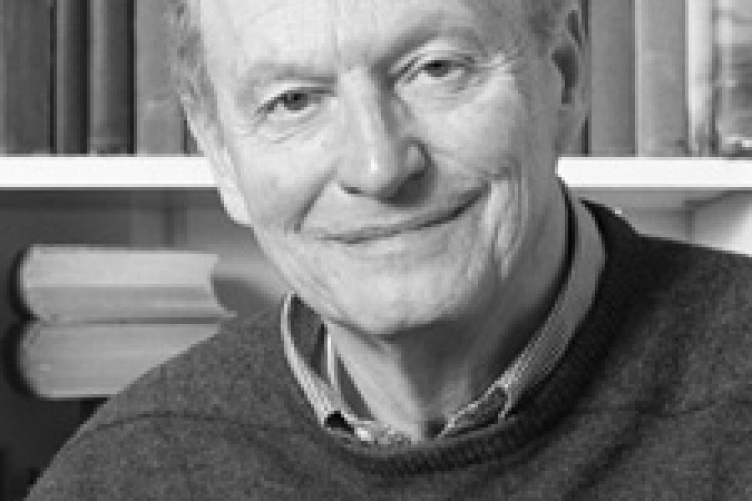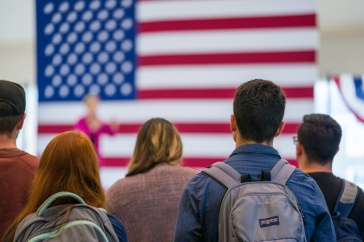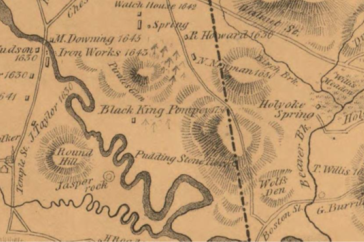
Professor emeritus of history Charles E. Clark passed away on December 3, 2013, in Exeter, N.H. For 30 years, Professor Clark served with distinction the Department of History, the College of Liberal Arts, the University of New Hampshire, and the disciplines of history and humanities. He retired in 1997.
Professor Clark earned a bachelor’s degree at Bates College and a master’s degree in journalism from Columbia. In his early career, he worked as a reporter for newspapers in New Hampshire and Rhode Island and spent four years in the Navy as an air intelligence officer. He returned to studies at Brown University, earning a doctorate in American civilization in 1966. He was assistant professor of history at Southeastern Massachusetts Technological Institute, now the University of Massachusetts Dartmouth, before joining the faculty at UNH in 1967.
During his tenure at UNH, Professor Clark taught courses on New Hampshire and New England history, early American history and culture, and American religious history, among other topics. He published six books, most covering some aspect of New England history: The Meetinghouse Tragedy: An Episode in the Life of a New England Town (UPNE, 1998); The Public Prints: The Newspaper in Anglo-American Culture, 1665-1740 (Oxford UP, USA, 1994); Printers, the People, and Politics: the New Hampshire Press and Ratification (NH Humanities Council, 1989); Maine in the Early Republic: From Revolution to Statehood (UPNE, 1988), a co-edited collection; Maine: A Bicentennial History (W.W. Norton, 1977); and The Eastern Frontier: The Settlement of Northern New England, 1610-1763 (Alfred A. Knopf, 1970). Professor Clark’s accomplishments were recognized at UNH by his appointment as the first James H. Hayes and Claire Short Hayes Professor of Humanities in 1993. Nationally, Professor Clark was recognized with a number of fellowships from such institutions as the National Endowment for the Humanities (twice), the American Council of Learned Societies, the Huntington Library, and the Omohundro Institute for Early American History and Culture in Williamsburg, VA, among others. He was an elected member of the Colonial Society of Massachusetts and the American Antiquarian Society.
In addition to teaching and scholarship, Professor Clark assumed key administrative roles throughout his career. He chaired the Department of History for three years and served terms as director of graduate studies in history, coordinator of the Humanities Program, and coordinator of the UNH London Program. He was instrumental in the development of the Master of Arts in Liberal Studies program, which welcomed its first class in 1996. His service on numerous boards, panels, councils, and committees in the community and profession beyond UNH extended his influence regionally and nationally.
“I will always remember Charlie’s collegiality, his kindness toward students, and his hearty laugh,” says Robert Mennel, professor emeritus of history and long-time colleague. “His presence helped to make the department a wonderful place to be in our time.”
Eliga Gould, chair and professor of history, adds, “Charlie was beloved by all who knew him. His absence will be felt profoundly.”
The College is saddened by the loss of Charles Clark but bolstered by the knowledge that we are stronger and more vibrant for his three decades within our halls.
A memorial service will be held on Saturday, December 21, 2013, at 4 p.m. at the Community Church in Durham. The service will conclude with a short outdoor candlelight remembrance.
Memorial contributions can be made to the UNH Foundation in the name of Charles E. Clark. Visit www.jvwoodfuneralhome.com to sign an online guest book.

















































